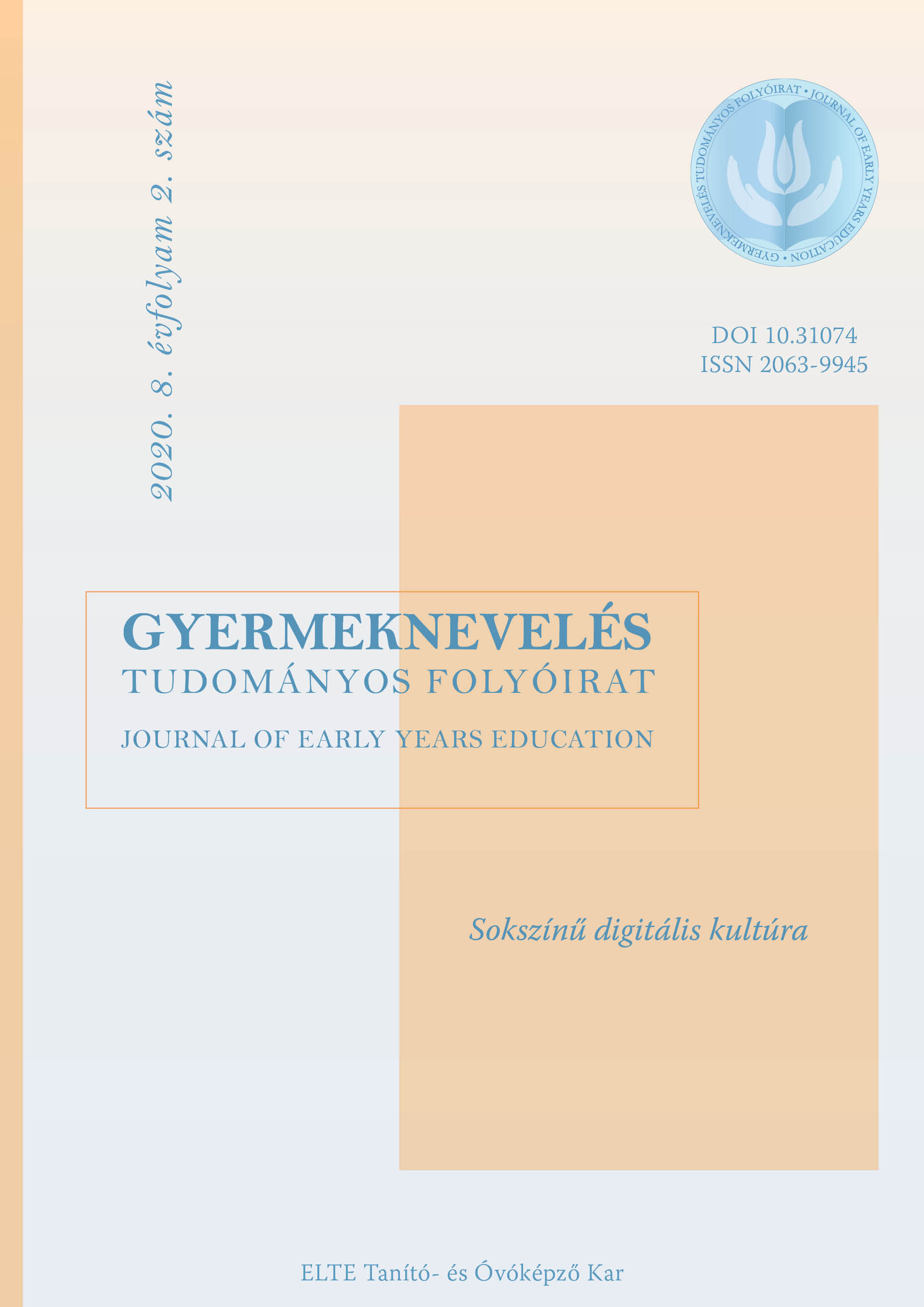How does mobile device use influence preschoolers’ attention and socio-cognitive skills?
DOI:
https://doi.org/10.31074/gyntf.2020.2.13.31Keywords:
mobile touch screen devices, digital games, attention, socio-cognitive skillsAbstract
Mobile touch screen devices (MTSDs: smartphones and tablets) are used by an increasingly greater number of children, at a very early age, which may influence their cognitive development, posing challenges to parents and teachers. In a cross-sectional study we tested whether pre-schoolers who frequently use MTSDs show different attentional and socio-cognitive skills than non-users. Additionally, we investigated experimentally whether children exposed to digital and non-digital games show different subsequent attentional performance, and whether the speed of the digital game matters (by exposing children to either a slow or a fast digital game). While children displayed global advantage in the selective attention task (independently of pre-existing MTSD use), MTSD users showed an atypical, local-to-global precedence in the divided attention task (faster reaction when the target stimuli was presented at the local level as opposed to the global level) and their performance in the global trials lagged behind from that of non-users. MTSD use was also associated with worse performance in theory of mind tasks, but not worse emotion recognition performance, compared to non-users. The results regarding attention control was strengthened by our experimental study: children exposed to the digital game showed a local advantage in the divided attention task but global advantage in the selective attention task, while those exposed to the non-digital game showed a global advantage in both tasks. Children playing with the slow digital and the non-digital game performed better in the selective than in the divided attention task, in contrast, those playing with the fast digital game showed no advantage of selective attention over divided attention. Our results show that short- and long-term MTSD use, and specifically, playing MTSD games leads to a more locally oriented attention, maybe because digital screens are rich in local information and the whole visual pattern is rarely seen at once. Playing with fast digital games require the user to attend multiple stimuli simultaneously, which may train divided but not selective attention. MTSD use also takes away time from social experience, which may explain why users have difficulties with higher-order socio-cognitive skills. These insights inform psychology and pedagogy, and help to develop more optimal methods for knowledge transfer.
Downloads
Downloads
Published
How to Cite
Issue
Section
License
Copyright (c) 2020 Author

This work is licensed under a Creative Commons Attribution-NonCommercial-ShareAlike 4.0 International License.

